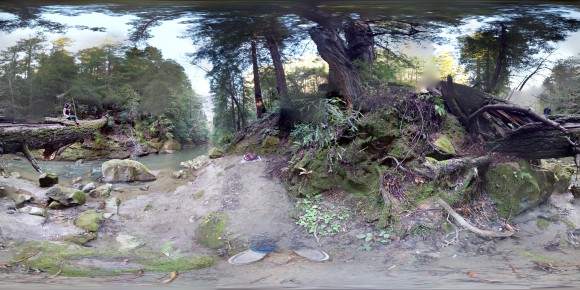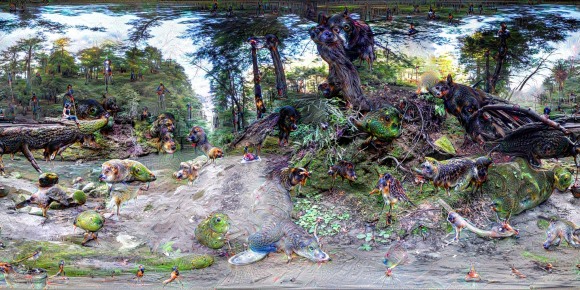
It’s all too easy to view the first decade of the 21st Century as just an unmitigated series of disasters: September 11th, the Iraq War, Hurricane Katrina, and the meltdown of the global financial system, to name just a few.
But the 2000s also saw continued acceleration in the advance of technology and its impact on society, as we continued to ride the exponential curve of Moore’s Law. So, let me offer my “Silicon Valley: Top 10 of the 2000s”…
The Dot Com Bubble Collapse. (Yes, even this list starts with a disaster.) We entered the new decade and the new century drunk with optimism that recessions were a thing of the past, with a firm belief that the Internet’s transformational power had created an unprecedented “long boom“. And then, in March of 2000, the Bubble burst, sending Silicon Valley into a multi-year “nuclear winter.” Internet companies of all sizes imploded, unemployment rose, buildings went vacant, vendors started requiring cash (rather than asking for equity), and the venture capital fire hose turned into a trickle.
Broadband and Wi-Fi. While many of us licked our wounds and wondered whether Silicon Valley would ever recover, the underlying fabric of the Internet just kept getter better. Broadband access crossed over from early adopter to mainstream, and Wi-Fi hotspots spread like wildfire, fueling a rapidly growing addiction to the Internet. Ten years ago, most of us sipped the Web through dial-up straws; now we expect high-speed access everywhere, all-the-time.
Google IPO. In the first half of the 2000s, one company defied the pessimism and came to symbolize the hope of a return of the good old days. Google reminded us that the Bubble was less about the true Silicon Valley and more about the madness of irrational investment behavior on Wall Street. And their profitability and growth were so strong that they could do what no one else could since the collapse — pull off a tech IPO. Heck, they not only IPO’d, they dictated their own terms to the Street, with a Dutch auction in the summer of 2004. Indeed, for most of the 2000s, Google was the undisputed hottest company of Silicon Valley. [Correction: Dave McClure points out that another high-flier, PayPal, was the first tech IPO, post 9/11. He’s got a lot of other great additions, too, so be sure to read his comments. Thanks, Dave!]
Blogging. Though blogging started in the ’90’s, it would take until the middle of the 2000s for it to become a powerful mainstream force. But by decade’s end, sites like TechCrunch, Mashable, Techmeme, CNET, GigaOm, ReadWriteWeb, VentureBeat, and ZDnet, among many others, had completely transformed how we discover, consume, and create tech news. And it wasn’t just tech. The power of blogging was transforming every facet of the news business, from politics to sports — and even to the paranormal, like when a Bigfoot hunter held a press conference in Palo Alto.
YouTube. In the ’60’s, it was said that “the revolution will be televised”. In the 2000s, it became clear that it would be uploaded to YouTube. The video sharing site blasted off from the emerging “Web 2.0” scene in early 2005, rocketed to mainstream impact, and got acquired for $1.6 billion by Google — all in less than two years! Suddenly, Silicon Valley was once again a place where a few people could get together, build something innovative, have big impact on the world, and get ridiculously rich in the process. The Web 2.0 revolution was in full force, with hundreds of new companies with funny names popping up all over, embracing user-generated content and social virality.
Facebook. Mark Zuckerberg and team did not invent social networking, but they apparently internalized all of the right lessons from those that had come before, including Plaxo (the first socially viral “people layer” network, founded by Sean Parker, Cameron Ring, and Todd Masonis), Friendster, and MySpace. Facebook exploded out of Mark’s dorm room, riding a potent exponential growth curve that continues to this day, propelling Facebook to the center stage of the Internet industry — and finally giving Google a run for the money in the “hottest company in Silicon Valley” category.
Twitter. As the 2000s come to a close, a new contender is rising, not from Silicon Valley, proper, but from the Ground Zero of the Dot Com Bubble of 10 years ago: San Francisco. Twitter, a darling of the early adopter set, launched at the cool geek confab, SXSW, in 2006, and remained decidedly niche for so long, that many thought it might be remembered primarily for its “fail whale”. But Twitter eventually connected with celebrities and mainstream media outlets, like CNN, and the chirpy little bird soared into the stratosphere.
Ereaders (Kindle, nook, and more to come). Books are one of the most important inventions in human history. Major breakthroughs (like the Internet) are often compared with the impact of Gutenberg‘s movable type press from the 1400s. As the 2000s are coming to a close, “ereaders” are revolutionizing the concept of a book, turning it from a physical object to a digital item pulled from the clouds. In the coming decade, the impact will be enormous.
Apple, iPod, and iPhone. For a company that almost died in the ’90s, the 2000s have been a truly remarkable decade for Apple, featuring a return to profitability, a string of hot new products, the launch of two new billion-dollar-plus product lines (iPod/iTune and iPhone), and the reinvention of the music and mobile phone industries. Silicon Valley sees “Big Waves” only once every 15 years on average, but we’re ending the 2000s, riding two distinct and reinforcing Mavericks, and one of them is embodied by the iPhone. The iPhone has given birth to a new ecosystem, much the same way the personal computer did in the late ’70s and early ’80s, and is inspiring vigorous competition in what had been a technological backwater. Of course, the other really Big Wave is the emergence of…
The Social Web. When Sean Parker and team pitched Mike Moritz at Sequoia, seeking venture funding for Plaxo in the dark days of 2002, it was not just to solve the real and vexing problem of stale address books. The billion dollar opportunity they pitched was that the Internet, for all its great impact, would not reach its full potential unless and until someone brought to it the missing “people layer”. If real identity and real relationships could be combined with network effect and Internet-style interoperability, they said, something really big would happen. Of course, like so many big, bold visions, getting there has taken multiple attempts, and now involves a really dynamic collaboration between big Internet companies, “Open Stack” grass-roots communities (like OpenID, OAuth, Portable Contacts, Activity Streams, the Open Web Foundation, and OpenSocial), and lots of startups, but we exit the 2000s seeing proof-points all around of the emergence of an open and interoperable Social Web. It’s becoming increasingly common to visit a new website and be able to use an online identity you’ve established at Facebook, Twitter, Google, or a growing list of other identity providers, and get a new account (without having to repeat the dreadful process of choosing a new password, filling out a bunch of forms, importing your address book, and re-friending the same long list of familiars you’ve friended so many times before). Look to the coming decade to bring us an amazing array of new startups native to this new Social Web.
What do you think? Are these the right 10? Nominate others via comments.
And, now all that’s left is to wish you all a Happy New Decade!






















